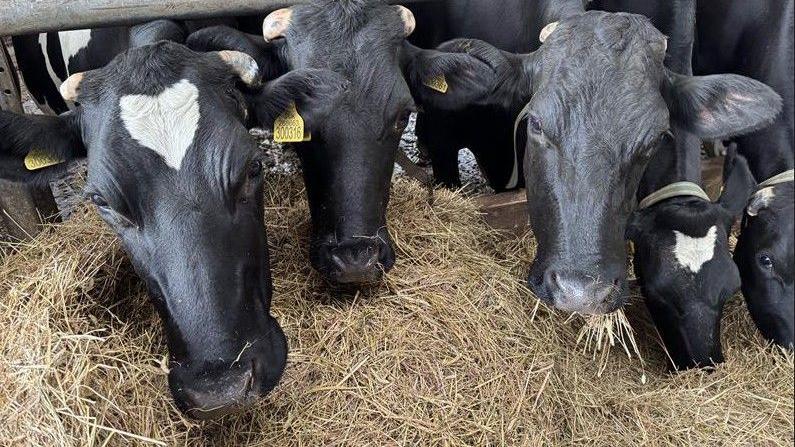Milk price cuts: 'Is it worth a 90-hour week?'
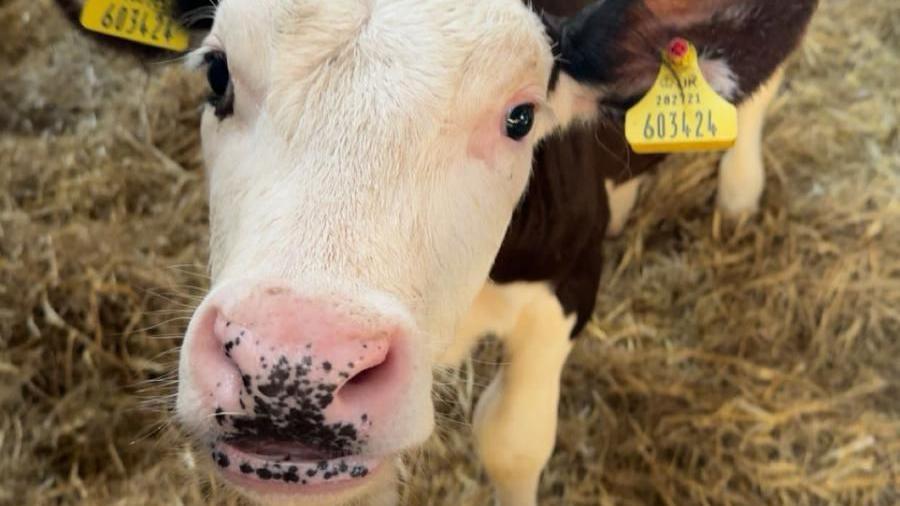
The cows have been eating winter silage instead of grazing because of the dry summer
- Published
A young dairy farmer says his industry is facing a double hit after a sudden drop in milk prices, on the back of an exceptionally dry summer.
Jack Emery, from Eastleigh, Hampshire, said the cut of 6p a litre to farmers is equivalent to £9,000 a month for his family's business.
He said the farm had been using winter silage to feed cows in the summer after the dry weather left insufficient grazing.
National Farmers' Union South board member and Dorset dairy farmer Ian Baggs said it was a "tough industry" and dairy farmers were becoming an "endangered species".
Mr Emery, of Thistle Ridge Farm, said: "We got a letter from who we supply to, saying there is a two-million-litre surplus in the UK."
He said his farm produced 5,000 litres a day and was getting paid 44p a litre, with production costs of just under 40p a litre.
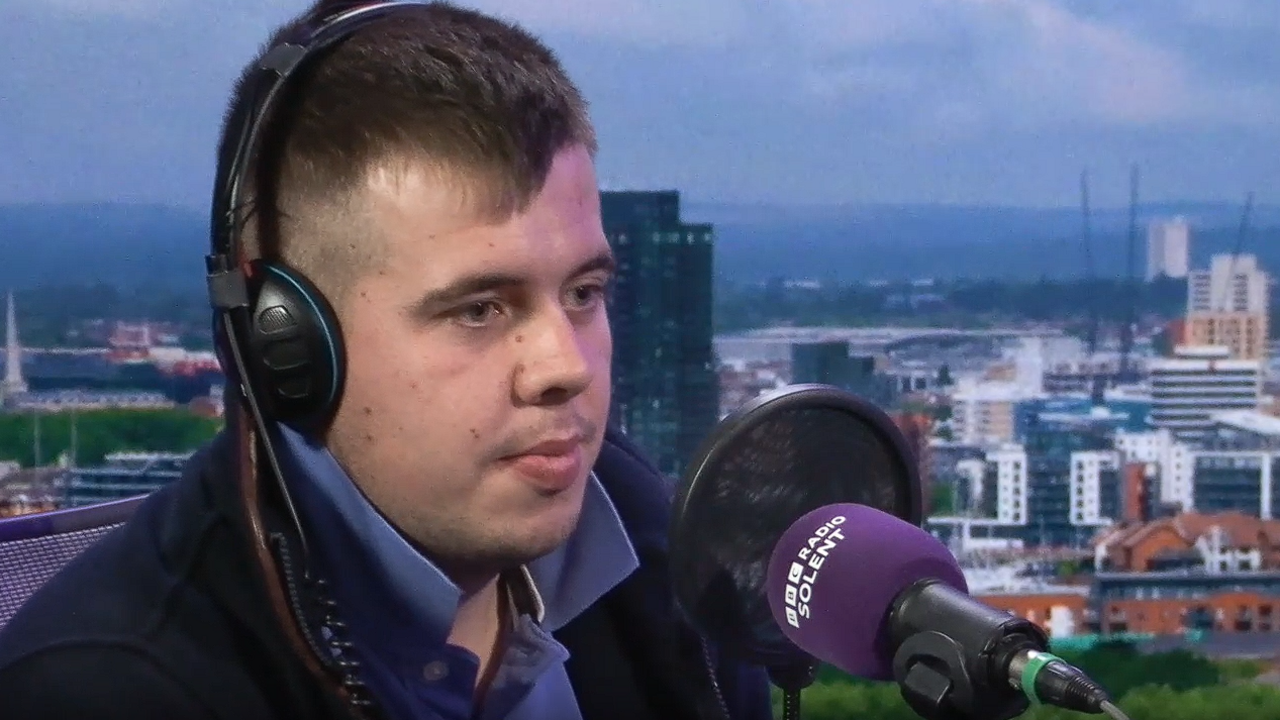
Jack Emery told Radio Solent the 6p cut equated to more than £100,000 a year for his farm
"The margin is not fantastic," he said, adding that the 6p cut "poses a risk of putting us below production costs".
"If you want to be really doom and gloom, that's over £100,000 a year, which is a colossal figure on top of the forage supplies.
"It really is hitting home twice at once."
Mr Emery said he worked 90-hour weeks and news of the price cut had been demoralising.
He said: "You put all this effort in - it makes you think 'is it worth getting up at 4 o'clock in the morning in the rain?'"
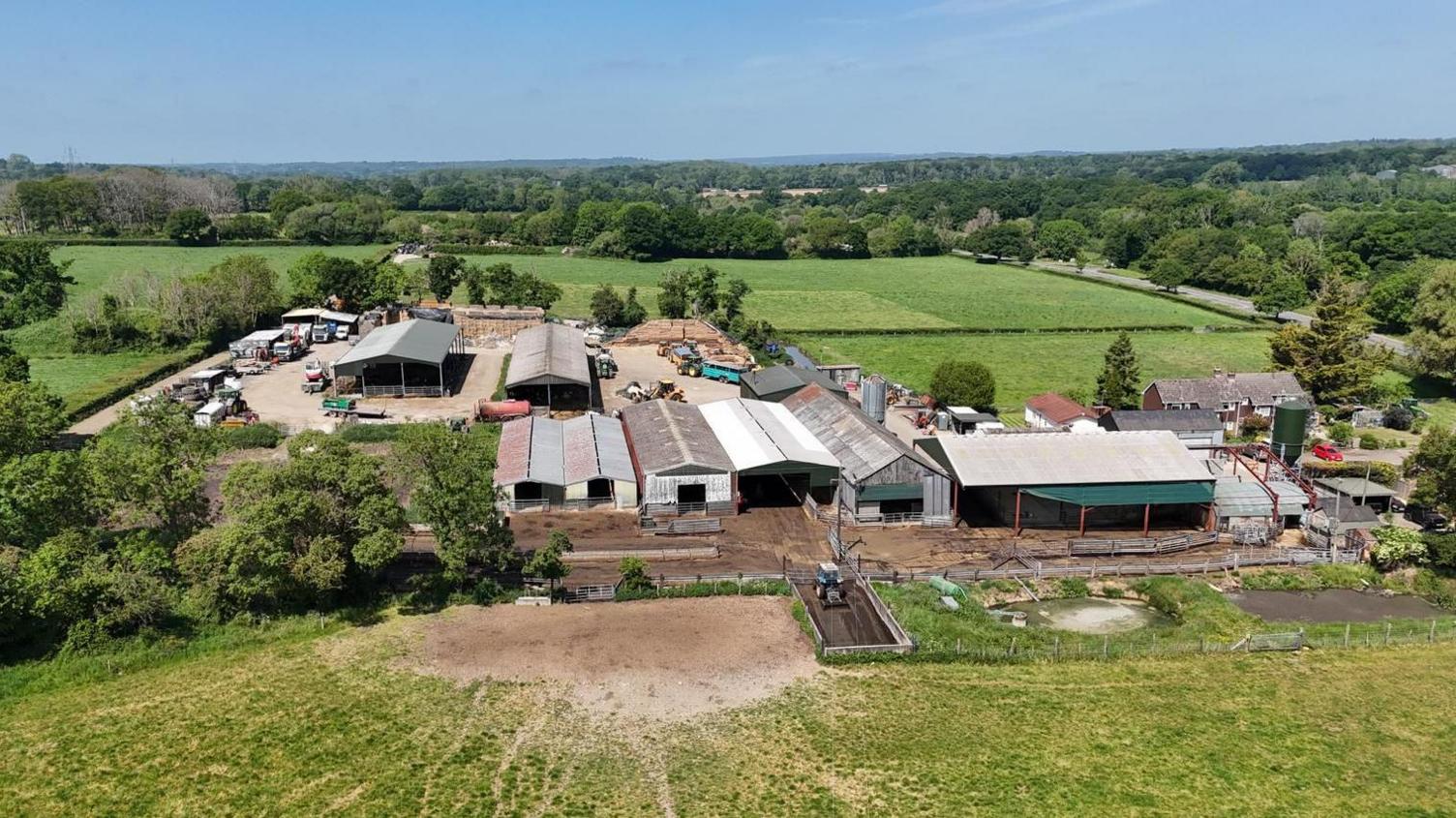
Jack Emery said the profit margins on producing milk were "not fantastic"
Mr Baggs, a fourth-generation dairy farmer on the Isle Purbeck, said: "When you produce a commodity, you are unfortunately vulnerable to market changes.
"You've got to do quite a lot of belt tightening. It's a tough industry.
"Last year was a better year but it is a volatile market and we would like to see a bit more stability.
"In 2000 there were 23,000 dairy farmers, in 2020 there were 8,500.
"Now there are 7,000 - we're becoming an endangered species."
Get in touch
Do you have a story BBC Dorset should cover?
You can follow BBC Dorset on Facebook, external, X (Twitter), external, or Instagram, external.
- Published28 August
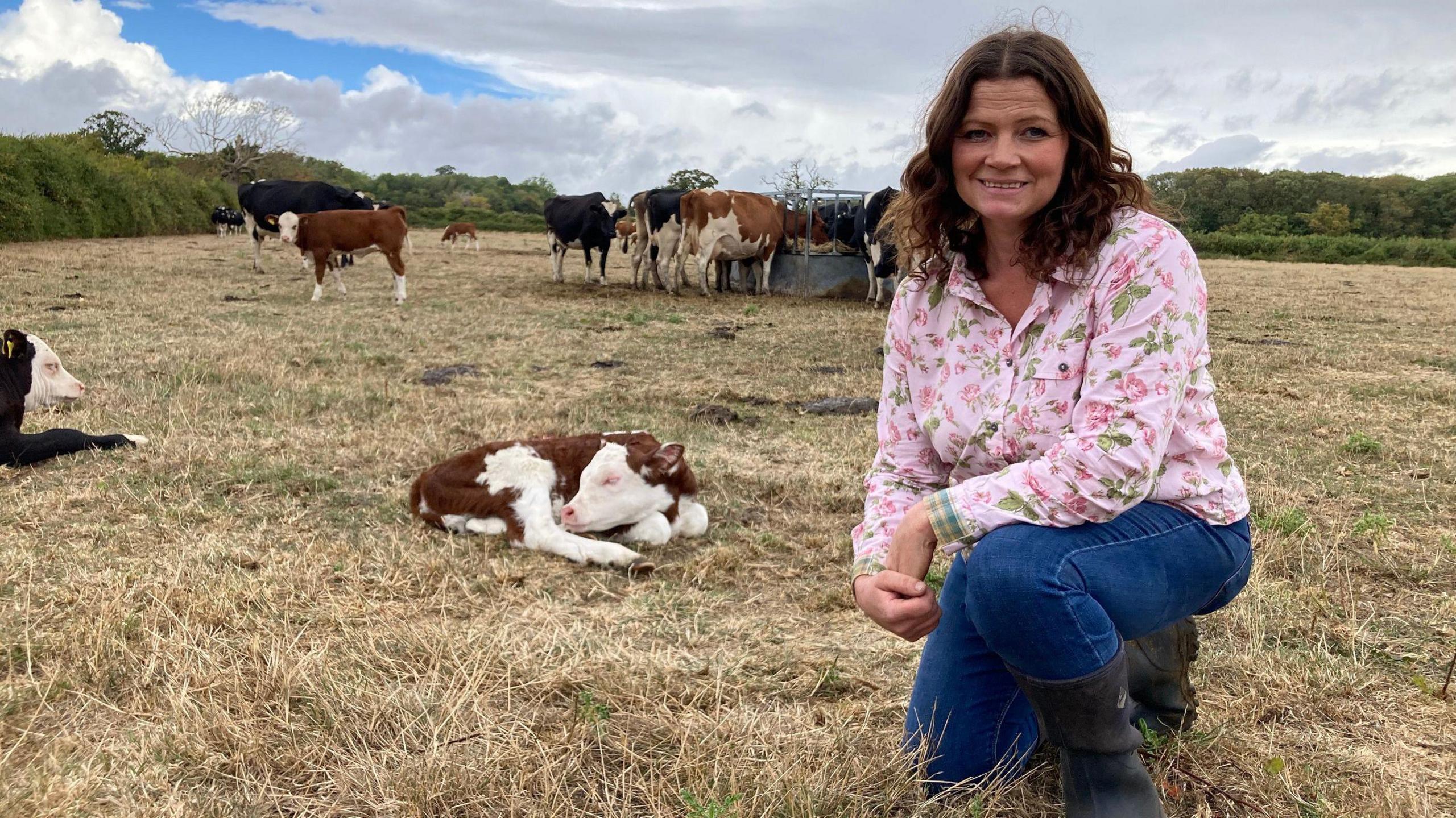
- Published7 August
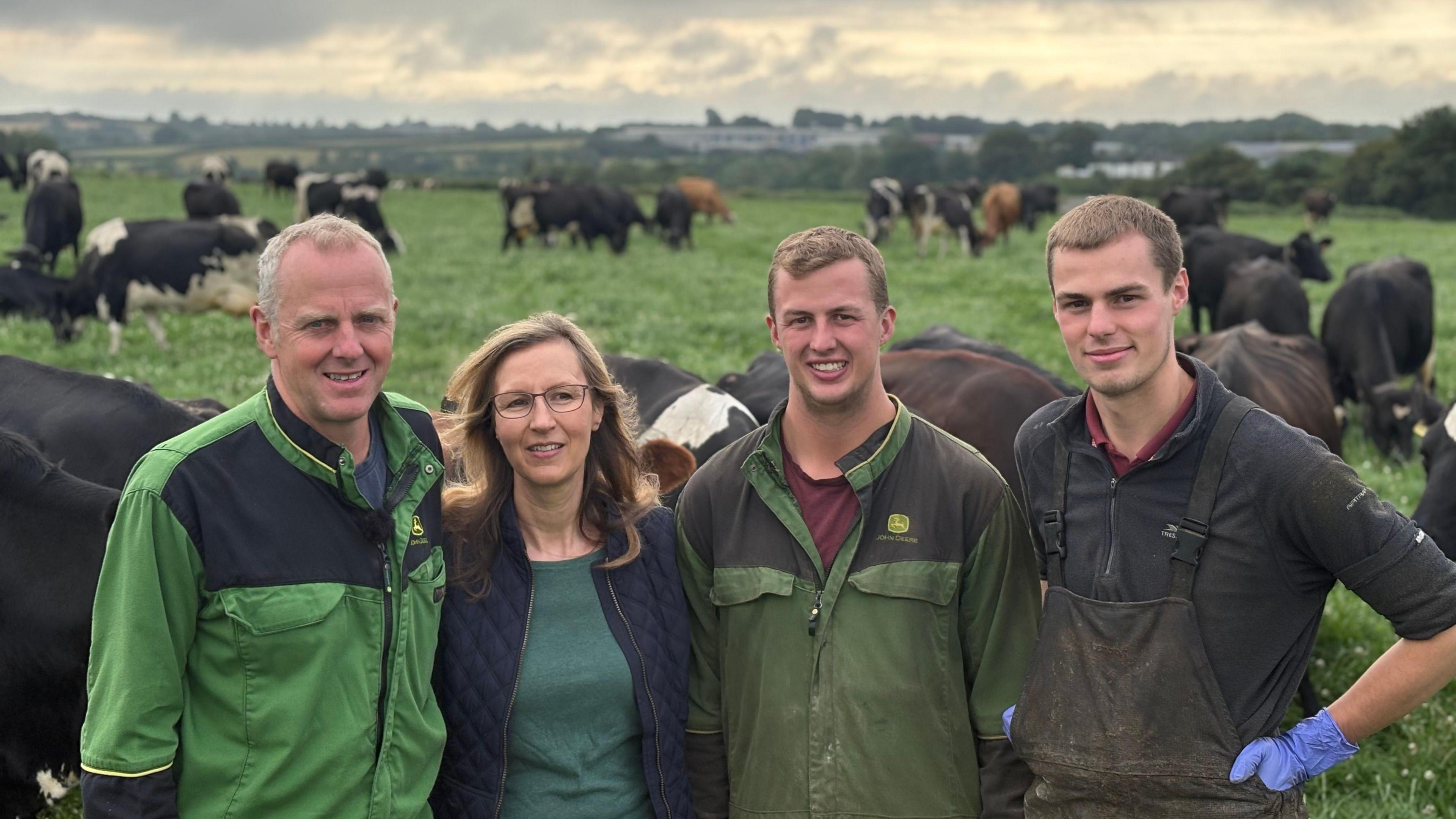
- Published7 August
